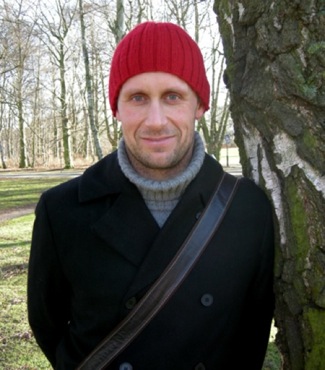Kolbjorn Tunstrom: Difference between revisions
From Santa Fe Institute Events Wiki
No edit summary |
No edit summary |
||
| (One intermediate revision by the same user not shown) | |||
| Line 1: | Line 1: | ||
[[Image: | [[Image:Kolbjorn.JPG]] | ||
I'm a third year Ph.D. student at the Complex Systems Group at Chalmers University of Technology, Sweden. Having done my master thesis at the Los Alamos National Laboratory (back in 2001), I look forward to getting back to this magnificent landscape once again. | I'm a third year Ph.D. student at the Complex Systems Group at Chalmers University of Technology, Sweden. Having done my master thesis at the Los Alamos National Laboratory (back in 2001), I look forward to getting back to this magnificent landscape once again. | ||
Latest revision as of 14:17, 19 May 2008
I'm a third year Ph.D. student at the Complex Systems Group at Chalmers University of Technology, Sweden. Having done my master thesis at the Los Alamos National Laboratory (back in 2001), I look forward to getting back to this magnificent landscape once again.
1. What are your main interests?
In a popular sense, I want to make the world simpler than it is. If that is vague, a more technical wording is easily provided: My work is centered on developing coarse-graining techniques for use in simulation of (bio-)molecular systems. In the real world, many systems span large length and time scales. A simple example is a red blood cell, where the smallest scales can be represented by the size of a water molecule (~1 nanometer) and the collision time between the molecules (~1 picosecond). In the other end is the size of the whole cell (~1 micrometer) and its lifetime (~120 days). Due to these differences in time and length scales, the computational resources needed to simulate such a system in full detail, using Newton's laws of motion, become overwhelmingly large. In practice this means that what systems can be studied are strictly limited by spatial and temporal resolution. The development of coarse-graining techniques is therefore a necessity to increase the range of systems available to computer study.
2. What sorts of expertise can you bring to the group?
I believe I can contribute on the technical side: Simulation techniques and numerical techniques, use of mathematical software, mathematical modeling and solving differential equations. But even though my work is highly technical, I'm tending towards having a birds eye view of stuff, and enjoy that role in a project.
3. What do you hope to get out of the CSSS?
I hope to broaden my knowledge about Complex Systems in general, and in particular to get acquainted with what is going on with Complex Systems methodology applied to social systems.
4. Do you have any possible projects in mind for the CSSS?
Not at the moment. (But I guess I would enjoy the opportunity to explore tracks outside my daily work and perhaps participate in a project related to Social Science.)

